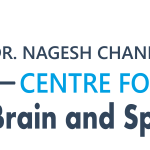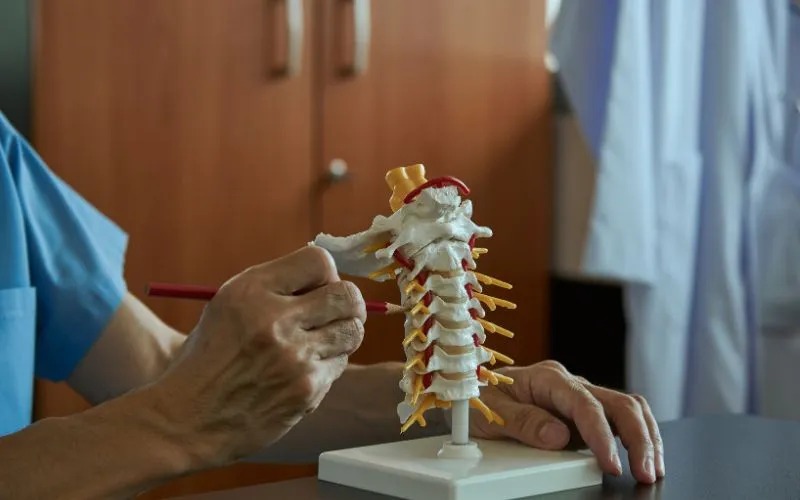It’s essential for you to know the difference between a neurologist and a neurosurgeon when dealing with medical disorders involving the central nervous system. They both deal with problems that affect the brain and spinal cord which perform most functions of the body. However, their roles differ: a neurologist diagnoses and treats neurological diseases using medicines without surgery and operations while a neurosurgeon in Delhi carries out the surgery to deal with brain and spinal cord disorders.
What is a Neurologist?
Neurologists treat brain and nervous system conditions. They diagnose and treat them using non-invasive approaches. They are the first expert someone visits if they are facing brain or spinal cord issues. Neurologists can treat several conditions, including
- Neurological disorders: epilepsy, multiple sclerosis, Parkinson’s disease, Alzheimer’s disease, and forms of dementia.
- Neuromuscular disorders: Muscular dystrophy, myasthenia gravis, peripheral neuropathy and other diseases.
- Headaches and migraines: Management of terminal and chronic stages.
- Stroke: Eliminating both ischemic (clot-promoting) and hemorrhagic (bleeding-causing) kinds.
- Movement disorders: Tremor, dystonia and restless leg syndrome.
- Seizure disorders: These include epilepsy and several other types of seizures.
- Neurodevelopment disorders: These include autism and Attention-Deficit — Hyperactivity Disorder (ADHD).
- Neurological injuries: These refer to traumatic brain injury or spinal cord injury.
Neurologists use a variety of diagnostic tests and methods. Some of these diagnostic tests are MRI, CT scans, EEGs, EMGs, regular neurological exams, and nerve conduction studies. They work with other physicians and specialists to ensure the best care for neurological condition
What is a Neurosurgeon?
The impression that neurosurgeon in Delhi only perform operations on the brain is a misconception. As per the AANS, they often specialize in spine conditions and procedures, and neuro-related conditions as well.
Neurosurgeons are specialists who diagnose and treat various conditions affecting the central nervous system. This includes back pain, neck pain, herniated disks, and degenerative spinal diseases. They also tackle cerebrovascular diseases, brain and spinal tumours, and strokes. Moreover, they diagnose and treat conditions in which symptoms in a particular body part originate from problems of the central nervous system, for example, carpal tunnel syndrome resulting from spine problems in the cervical spine.
Even though they are capable of doing complex surgeries, neurosurgeons usually advocate for and implement non-surgery therapies first. When surgery is inevitable, they use minimally invasive methods wherever possible. In addition, surgeons of the nervous system execute an important job in emergencies, for example, giving urgent care to patients with traumatic brain and spinal cord injuries. Neurosurgeons’ expertise assures patients that the treatment of neurological disorders will be holistic and well-managed.
Difference in Degree and Training
Neurologists undergo rigorous training that usually begins with four years of pre-medical education and four years’ of medical college culminating in an MD or DO diploma. After this, they go through a one-year internship and complete a 3-year specialized neurology residency program. Neurologists who have a passion for a particular branch like stroke, movement disorder, or sleep medicine can go for further training in any of these fields.
Neurosurgeons train longer than neurologists, they are also the ones who go through the longest training period among medical specialities. Like neurologists, they also have to finish four years of pre-medical education and four years of medical school, before starting a 1-year internship. Their residency takes around five to seven years, where they get the opportunity to have wide procedures of neurosurgical practices. Commonly several neurosurgeons take fellowships to focus on sub-specialties like spine surgery, pediatric neurosurgery, or peripheral nerve surgery.
Who Should You Visit First: A Neurologist Or A Neurosurgeon?
Choosing a neurologist or a neurosurgeon in Dwarka, Delhi as an initial treatment depends on facts including the time of onset of symptoms and your full medical history. Here are some situations when to visit each specialist:
Visit a Neurologist First, if:
- You Experience Neurological Symptoms: Neurologists identify and treat brain, spinal cord, and nerve disorders. These disorders could be headaches, seizures, numbness, weakness or coordination difficulties. They can roll out full-fledged examinations and instruct appropriate diagnostic procedures to find out the fundamental reason for your complaints.
- Your Condition Doesn’t Require Immediate Surgery: If your symptoms are not alarming, a neurologist is the first point of contact. They can start medications or lifestyle adjustments to help you feel better.
- You Have Been Referred by a Primary Care Physician: Your primary care doctor may recommend visiting a neurologist if they notice symptoms of neurological issues. This is to make sure that you are referred to specialized treatments and diagnostic examinations that are well-fitted for your condition.
- You Have a Known or Suspected Neurological Disorder: If you already have a neurological disease or suspect to have it, seek the advice of a neurologist. They can give a patient an expert diagnosis, treatment or continuing management of conditions like epilepsy, sclerosis multiple or Parkinson’s disease.
Visit a Neurosurgeon First, if:
- Your Condition Requires Urgent Surgical Intervention: In cases of neurological emergencies like severe head trauma, spinal cord injuries or brain haemorrhages, the most important thing may be to remove the affected part immediately to prevent the brain from further damage. Neurosurgeons are trained to carry out complex processes and interventions for emergency circumstances.
- Your Condition Requires Surgical Treatment: If your symptoms are classified as a neurological condition that is most likely to benefit from surgery, or if you have already received a recommendation for surgical intervention by a doctor somewhere else, going straight to a neurosurgeon is advisable.
- You Have a Complex Neurological Issue: In complex or intricate neurological conditions such as brain tumour or spinal cord deformation, medical consultation with a neurosurgeon in the initial stages of diagnosis is wise. They can explain operative techniques, assess the options and create a personalized plan that suits your requirements.
Neurologists and neurosurgeons work collaboratively to provide the best care to patients. They rely on each other’s skills to curate the best treatment plans for each patient. Although the task of each specialist is different, both of these are experts with an aim to cure patients’ health issues.
If you’re not sure what specialist you should go to, ask experts for help. Neurologists and neurosurgeon can both bring you the required diagnosis and therapy. Remember that taking care of your nervous system health involves consulting a spine and brain doctor immediately.






Comments